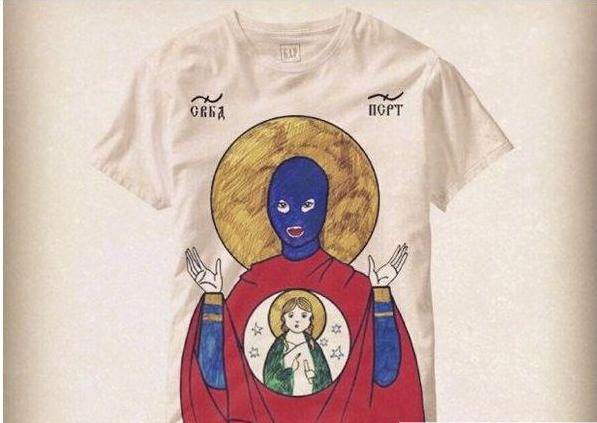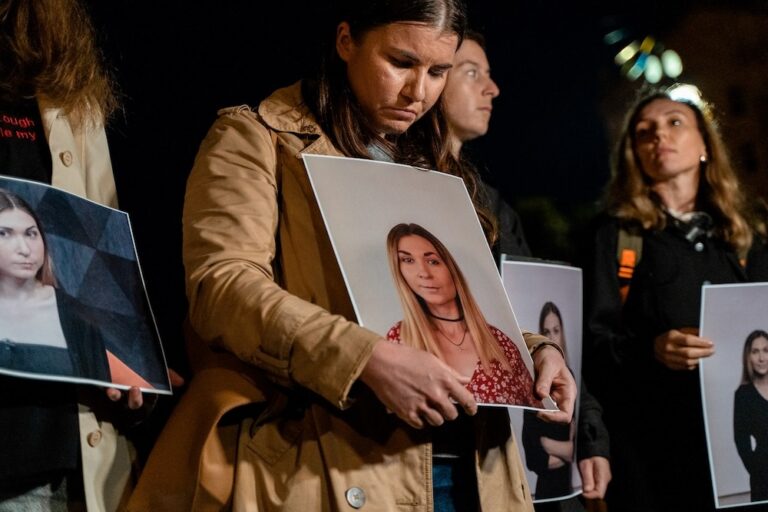In the past few years, the criminal prosecution of artists in Russia and new laws have made it clear that those who criticise the Kremlin or the Russian Orthodox Church in their creative work will face consequences.
Self-censorship has poisoned Russian media, art and other spheres.
In the past few years, the criminal prosecution of artists and new laws have made it clear for those who criticise the Kremlin or Russian Orthodox Church in their creative work, that they will face consequences for portraying either of these institutions negatively.
The State Duma recently passed two controversial laws in the first hearing. One forbids obscene language in movies, books, TV, and radio during mass public events. The other stipulates criminal punishment – including five years in prison – for “insulting believers’ feelings”. Both laws, as far as human rights activists are concerned, limit artists’ freedom of expression, and encourage self-censorship.
Index spoke to three notable artists to find out how the art community deals with self-censorship, and the ever-increasing restrictions on freedom of expression in Russia.
Artyom Loskutov, an artist from Novosibirsk, is famous for holding “monstrations” – flash mobs with absurd slogans like “Tanya, don’t cry” and “Who’s there?”. In 2009, he was arrested on drug possession charges, but he claims that the marijuana was planted on him by police. A blood test proved that he had not taken any drugs, and his fingerprints were not found on the package. Three years on, he faced three administrative cases, and paid a 1,000 rouble (approx. US$32) fine for creating icon-like images of Pussy Riot members Nadezhda Tolokonnikova and Maria Alekhina and placing them on billboards. He was accused of insulting believers. He is currently appealing the court ruling in the European Court of Human Rights.
The artist told Index that the cases against him are acts of censorship, but vows to remain defiant and continue with his work:
“The icons idea concerned two kinds of mothers: one mother is honoured as a saint, the two others – Tolokonnikova and Alekhina – were thrown in prison. The authorities, including the court, are becoming more insane, and one wouldn’t want to cause persecutions. But I can’t say that given that, I refuse to implement any of my plots. In the 90s my generation felt that we had nothing, except free speech, and all the 2000s attempts to take it away meet nothing but incomprehension.”
In 2010, the prosecutor’s office in Moscow’s Bassmany district examined the works of Moscow-based artist Lena Hades, “Chimera of Mysterious Russian Soul” and “Welcome to Russia“. Russian nationalists appealed to the authorities claiming these paintings insult Russians. The case did not go to court, but Hades told Index that Russian galleries feared exhibiting her paintings after the incident.
“Galleries are afraid of financial sanctions,” Hades says, “Although 95 per cent of my paintings are about philosophy rather than about social events, they are only exhibited in Tretyakov Gallery and Moscow Museum of Modern Art.”
Despite reduced chances of her work being exhibited, Hades still painted Pussy Riot’s members, and went on a 25-day hunger strike against their prosecution. The artist is no fan of self-censorship, even if it comes at a cost. According to her, no artist that responds to reality can accept self-censorship:
“This is not courage, this is aristocratic luxury of doing what you want. Self-censorship is more harmful for a modern Russian artist than censorship. He is frightened of scaring away galleries and buyers and prefers to paint landscapes with cows – anything far enough from real social life.”
Artist Boris Zhutovsky has a long-standing relationship with censorship. In 1962, he was slammed by then Soviet leader Nikita Khrushchev, who banned work by Zhutovsky and his colleagues. For several years following the incident, the artist faced difficulties in finding employment, and his work was not exhibited in the USSR.
Zhutovsky continues to court controversy today: in the past few years he has painted the trials of Russia’s most well-known political prisoners, businessmen Mikhail Khodorkovsky and Platon Lebedev, who were first convicted in 2005. He explained Russia’s culture of self-censorship to Index:
“Self-censorship is based on fear, and the amplitude of this fear has changed throughout my life. In the times of Stalin, it was the fear of the Gulag and execution. In the times of Khruschev it was the fear of losing a job or a country – a person could be forced to leave the Soviet Union. After Perestroika the fear shrank, and now the fear which nourishes self-censorship is the fear to anger your boss.”
He is optimistic that a younger generation of artists will not accept self-censorship as a standard, as the era of Putin is far from that of Stalin, but only time will tell.



